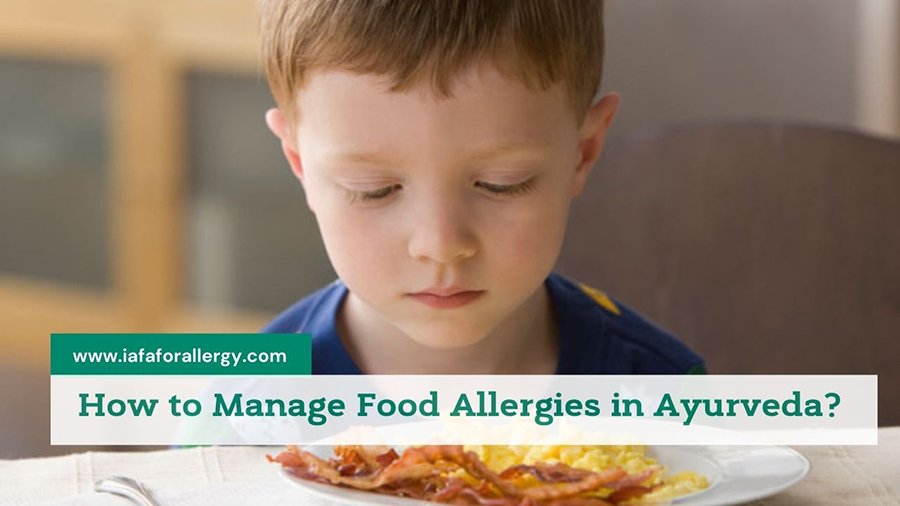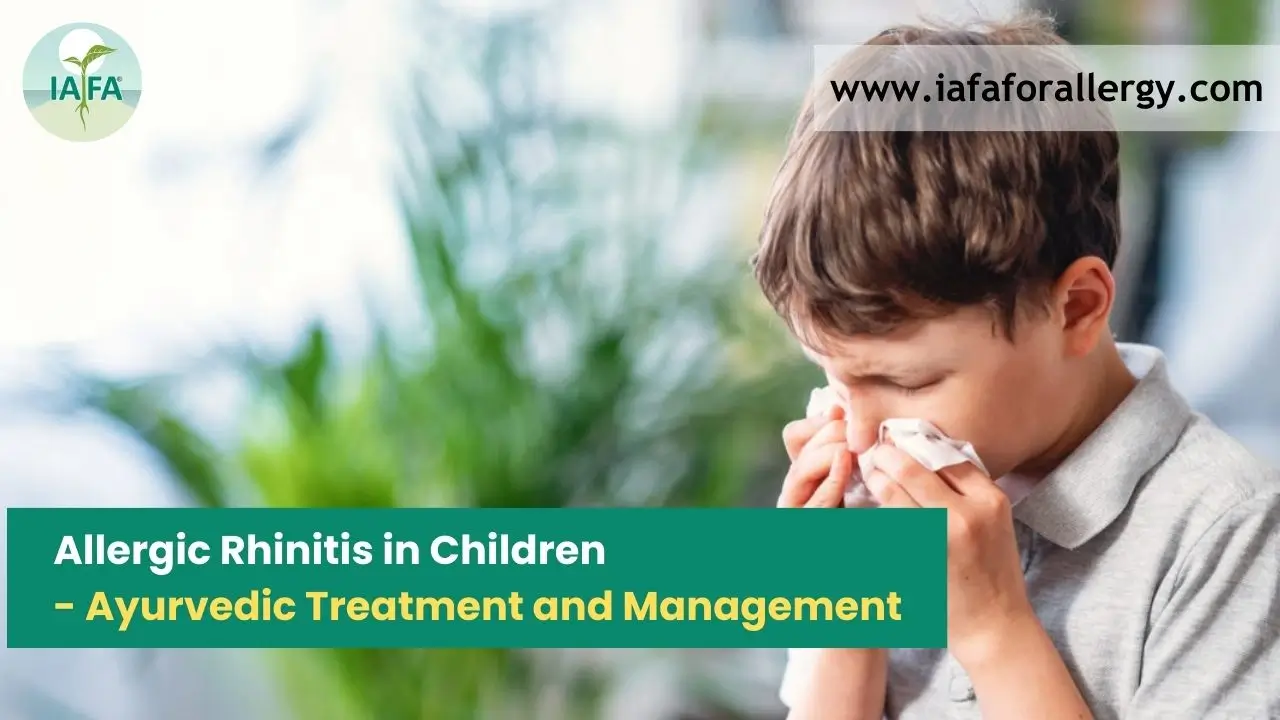Now a days, food allergy is becoming a common problem as it is affecting majority of the population. For some it may be an allergy to milk, while for some, it may be allergy to wheat, soy etc. Let’s know about how to manage food allergies in Ayurveda.
There are three different types of allergies that cause unpleasant reactions such as food allergies, airborne allergies and contact allergies. In all these types of allergies, the body recognizes something that is typically non-harmful as harmful. The immune system becomes over-active to remove the pathogen and causes the symptoms.
According to Ayurvedic principles, there are various reasons of food allergies such as intake of wrong food combination in diet, stress etc.
Every food has its own rasa (taste), veerya (a heating or cooling energy) andvipaka (post digestive effect). Therefore, food combinations are of great importance. When two or more foods having different taste, energy and post-digestive effect are combined. Agni can become over-loaded thus inhibiting the enzyme system and resulting in the production of toxins. But, if these same foods eaten separately, might stimulate the digestive fire more quickly and even help to burn ama (toxins) that can result in food allergies.
Poor combining of foods can produce indigestion, fermentation, putrefaction and gas formation as well. For example, eating sour foods with milk can diminish the digestive fire, change the intestinal flora and produce toxins because their vipak (end product of digestion) is very different.
What are the Symptoms of Food Allergy?
- Vomiting after ingesting food
- Blue skin or lips
- Confusion
- Collapsing or losing consciousness
- Difficulty in breathing
Ayurveda believes that the primary cause of allergies in the body is the accumulation of toxins and low digestive fire which lead to depleted immunity. Thus, treatment of food allergies in Ayurveda focuses on cleansing the body of the toxins and boosting the immune system.
Manage Food Allergies in Ayurveda
Ayurvedic herbs and herbal remedies are generally utilized in the treatment of food allergies. Some of the herbs that act as an immunomodulator and useful in food allergies are:
1. Ashwagandha (Withania somnifera):-
- Ashwagandha is known as Rasayana in Ayurveda. It helps in reinforcing the body’s ability to withstand stress.
- As an adaptogen, it also promotes optimal immune function.
- Additionally, it is quite supportive for lungs and upper respiratory tract.
2. Trikatu:-
Trikatu is a traditional Ayurvedic formula that contains three herbs: long pepper, black pepper and ginger. In Ayurveda, this formulation is famous for its ability to kindle agni (digestive fire), digesting ama (toxins), encouraging clear breathing and proper metabolism.
3. Chyawanprash:-
- Chyawanprash is an herbal jam which is primarily aimed at maintaining a healthy immune system.
- It reduces the formation of ama, supports the body’s natural defence system and supports healthy digestion and metabolism.
4. Lemon:-
Take one glass lukewarm water and squeeze half lemon in it. Add one teaspoon of honey in it. Mix well and drink this mixture once a day.
5. Diet and Lifestyle:-
- In Ayurveda, it is stated that the digestive tract and immune function are so intricately linked, some changes in diet helps in maintaining digestive health and reduces the chances of food allergies.
- Ayurveda outlines several foods that are good when eaten individually but they should not be combined with other foods. These include taking fruits with milk, taking non-vegetarian foods with milk etc.
- Avoid the intake of cold, dense foods and beverages including processed and refined foods as they may slow the digestion process and disrupt the agni as well.
- Include warming spices such as ginger, black pepper, cinnamon, turmeric, cumin in the diet. These herbs are useful in strengthening the digestive fire and therefore help in managing the food allergies.
- It has been seen that in some patients, food allergies are linked with anxiety and stress. Regular practicing of Yoga and Meditation reduces the detrimental impacts of stress on the physiology. Daily pranayama practices such as ujjayi, bhastrika, kapalbhati etc. help in managing stress.
- Avoid foods that are difficult to digest.
- Exercise regularly
Conclusion
According to Ayurveda, every allergy sufferer is different and qualified practitioners tailor treatment is required is required to address a particular person. Ayurvedic treatment of food allergies generally focuses on boosting the digestive fire, adjusting diet to detoxifying the system and restoring the strength of the immune system.








